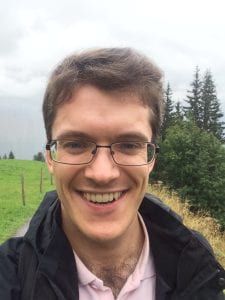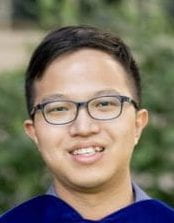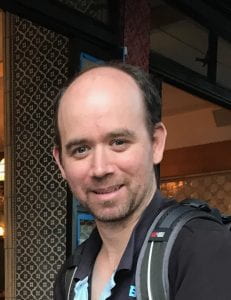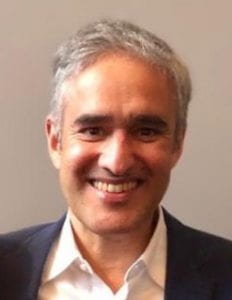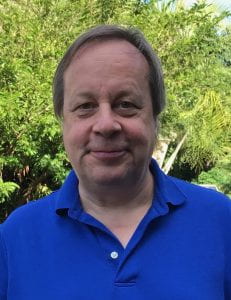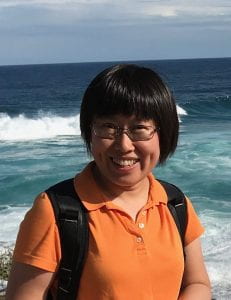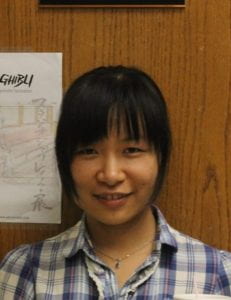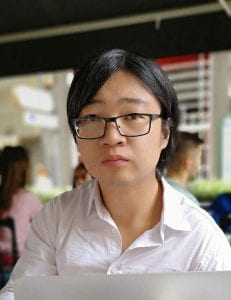Home page
Members
Dougal Davis Yau Wing Li Peter McNamara Arun Ram
Kari Vilonen Ting Xue Yaping Yang Gufang Zhao
Affiliated Members
Jan de Gier Nora Ganter Alex Ghitza Christian Haesemeyer Jack Hall
Thomas Quella David Ridout Chenyan Wu Paul Zinn-Justin
We are part of the Pure mathematics group.
Peter McNamara‘s research is in categorical and geometric representation theory. He has worked on a range of topics including quantum groups and their categorifications, perverse sheaves and Schubert varieties, algebraic combinatorics and p-adic groups.
Arun Ram’s research is in the area of Combinatorial Representation Theory. Topics he has worked on include tableaux combinatorics, crystals, diagram algebras, Lie theory, quantum groups, Hecke algebras, Schubert calculus, K-theory and cohomology of flag varieties and affine flag varieties. Current projects include constructions of representations of quantum affine algebras and a study of the combinatorics of double affine Hecke algebras and Macdonald polynomials.
Kari Vilonen‘s research is in the areas of real groups, the Langlands program, and related algebraic geometry. He has worked on several aspects of the geometric Langlands program and on more foundational questions on perverse sheaves and D-modules from the microlocal point of view. His research on real groups, joint with Schmid, includes the proof of the Barbasch-Vogan conjecture and a conjectural theory of Hodge structures on representations of real groups.
Ting Xue‘s research is in the areas of representation theory and algebraic groups. She has worked on questions related to geometry of nilpotent orbits and Springer theory, including small or bad characteristics. She is also interested in combinatorics arising from representation theory.
Yaping Yang‘s research lies in the area of Lie algebras, geometric representation theory, quantum groups, and the related geometry and topology. Her current work includes Knizhnik-Zamolodchikov equations, Cohomological Hall algebras, and vertex algebras associated to toric Calabi-Yau 3-folds.
Gufang Zhao‘s research lies at the interface between algebraic geometry and representation theory. More specifically, he has been working on projects concerning derived category of coherent sheaves, oriented cohomology theories of algebraic varieties, and their applications in representation theory. He is also fond of varieties of local systems and instantons, quantum integrable systems, and related aspects in mathematical physics.
Selected papers
-
- A full list of each member’s publications can be found on their individual webpages.
-
- P. J. McNamara and A. Savage, The spin Brauer category. arXiv2312.11766.
- P. J. McNamara, Cluster monomials are dual canonical. arXiv2112.04109.
- M. Lanini and P. J. McNamara, Singularities of Schubert varieties within a right cell. arXiv2003.08616. SIGMA 17 (2021), 070, 9pp.
- P. J. McNamara. Representations of Khovanov-Lauda-Rouquier Algebras III: Symmetric Affine Type. arXiv. Math. Z. 287 (2017), no. 1-2, 243–286.
- Peter J. McNamara, Finite Dimensional Representations of Khovanov-Lauda-Rouquier Algebras I: Finite Type, arXiv. J. Reine Angew. Math. 707 (2015), 103–124.
- D. George, Arun Ram, J. Thompson and R. Volkas, Symmetry breaking, subgroup embeddings and the Weyl group, arXiv1203.1048, Physical Review D 87 105009 (2013) [14 pages]
- Z. Daugherty, Arun Ram and R. Virk, Affine and degenerate affine BMW algebras: The center, arXiv1105.4207, Osaka J. Math 51 (2014), 257-283.
- A. Kleshchev, A. Mathas, and Arun Ram, Universal Specht modules for cyclotomic Hecke algebras , arXiv1102.3519, Proc. London Math. Soc. (3) 105 (2012) 1245-1289.
- P. Diaconis and Arun Ram, A probabilistic interpretation of the Macdonald polynomials, arXiv1007.4779, The Annals of Probability 40 (2012) Vol. 40 No. 5, 1861-1896.
- Roman Bezrukavnikov and Kari Vilonen, Koszul Duality for Quasi-split Real Groups, arXiv:1510.08343, Inventiones Mathematicae, 226 (2021),139-193.
- Masaki Kashiwara and Kari Vilonen, Microdifferential systems and the codimension-three conjecture. Ann. of Math. (2) 180 (2014) no. 2, 573-620.
- Wilfried Schmid and Kari Vilonen, Hodge theory and unitary representations of reductive Lie groups. Frontiers of mathematical sciences, 397-420, Int. Press, Somerville, MA, 2011, arXiv
- Kari Vilonen and Ting Xue, Character sheaves for classical symmetric spaces. With an appendix by Dennis Stanton. Represent. Theory 26 (2022), 1097-1144.
- Tsao-Hsien Chen, Kari Vilonen and Ting Xue, Springer correspondence for the split symmetric pair in type A , Compos. Math. 154 (2018), no. 11, 2403-2425. arXiv
- Tsao-Hsien Chen, Kari Vilonen and Ting Xue, On the cohomology of Fano varieties and the Springer correspondence, With an appendix by Dennis Stanton. Adv. Math. 318 (2017), 515-533. arXiv.
- Ting Xue, Combinatorics of the Springer correspondence for classical Lie algebras and their duals in characteristic 2. Adv. Math. 230 (2012) no. 1, 229–262.
- Marc Levine, Yaping Yang, and Gufang Zhao, Algebraic Elliptic cohomology theory and flops 1, appendix by Joël Riou. Mathematische Annalen volume 375, pages 1823–1855 (2019).
- Miroslav Rapcak, Yan Soibelman, Yaping Yang, and Gufang Zhao, Cohomological Hall algebras, vertex algebras and instantons. Communications in Mathematical Physics volume 376, pages 1803–1873 (2020)
- Yaping Yang, and Gufang Zhao, The cohomological Hall algebras for a preprojective algebra. Proc. Lond. Math. Soc. 116, 1029-1074.
-
Representation Theory Student Seminar 2021 Semester 2 and 2022 Semester 1&2
Organisers: Ting Xue, Yaping Yang, Gufang Zhao
Student organiser (2022S2): Davood Nejaty
Overview
This is a learning seminar on representation theory and related topics, aimed at 3rd year undergraduate students, MSc students, as well as PhD students in mathematics or related fields.
In the learning seminar, participants are expected to learn a topic based on the reference given, and present their work to the other participants. The audience are expected to ask questions and make comments during the presentation. Discussions tangential to the topics are welcome. The idea is for all participants to actively learn and discuss together.
This semester the topic will be Lie groups and their representations. We will follow the chapter on Lie groups by Graeme Segal in the reference below.
Reference: Carter, Roger; Segal, Graeme; Macdonald, Ian, Lectures on Lie groups and Lie algebras. With a foreword by Martin Taylor. London Mathematical Society Student Texts, 32. Cambridge University Press, Cambridge, 1995.
Time: Wednesdays 11-12
Location: Peter Hall 107 and Zoom (please contact the organisers for zoom link)
Exercises
Schedule (2022S2)
Time: Wednesdays 11-12
Oct 19/26 Kevin Fergusson The unitary and symmetric groups
Oct 12 Ali Khalili The complexification of a compact group
Oct 4 Cancelled
Sep 21 Amit Ben Harim Induced representations, continued
Sep 14 Amit Ben Harim Induced representations
Sep 7 Haris Rao The Peter-Weyl theorem, continued
Aug 31 Yuhan Gai Functions on and
Aug 24 Cancelled
Aug 17 Haris Rao The Peter-Weyl theorem
Schedule (2022S1)
Time: Mondays 11-12
Location: Peter Hall 107 and Zoom (please contact the organisers for zoom link)
Student organisers (2022S1): Weiying Guo and Davood Nejaty
May 30 Beaudon Anasson Maximal compact subgroups
May 23 Zhongtian Chen Compact groups and integration, continued
May 16 Zhongtian Chen Compact groups and integration
May 9 Kevin Fergusson Fourier series and Representation theory
May 2 Davood Nejaty Review, continued
Grace Yuan Bruhat decomposition Notes
Apr 11 Organisational meeting and review of previous topics
Schedule (2021S2)
Time: Wednesdays 3:15-4:15pm
Location: Zoom (please contact the organisers for link)
Dec 1 Linfeng Wei Lie’s theorems, continued. Notes
Nov 24 Linfeng Wei Lie’s theorems
Oct 27 Adam Monteleone Smooth manifolds, tangent space, one parameter subgroups and the exponential map, continued. Notes
Oct 20 Adam Monteleone Smooth manifolds, tangent space, one parameter subgroups and the exponential map, continued.
Oct 6 Adam Monteleone Smooth manifolds, tangent space, one parameter subgroups and the exponential map
Sep 29 Abraham Zhang Diagonalisation and maximal tori, continued. Notes
Sep 22 Abraham Zhang Diagonalisation and maximal tori
Sep 8 Grace Yuan Polar decomposition, Graham-Schmidt
Sep 1 Yifan Guo Homogeneous spaces, continued. Notes
Aug 25 Yifan Guo Homogeneous spaces Notes
Aug 18 Eskander Salloum , continued. Notes
Aug 11 Eskander Salloum
Aug 4 Benjamin Gerraty Examples
| Date | Topics | Reference | Speaker |
| Aug 4, 2021 | Examples | [S] 1 | Benjamin Gerraty |
| Aug 11/18, 2021 | [S] 2 | Eskander Salloum | |
| Aug 25/Sep 1, 2021 | Homogeneous spaces | [S] 3 | Yifan Guo |
| Sep 8, 2021 | Polar decomposition, Graham-Schmidt, Bruhat decomposition | [S] 4 | Grace Yuan |
| Sep 22/29, 2021 | Diagonalisation and maximal tori | [S] 4 | Abraham Zhang |
| Oct 6/20/27, 2021 | Smooth manifolds, tangent space, one parameter subgroups and the exponential map | [S] 5 | Adam Monteleone |
| Nov 24/Dec1, 2021 | Lie’s theorems | [S] 5 | Linfeng Wei |
| May 9/2022 | Fourier series and Representation theory | [S] 6 | Kevin Fergusson |
| May 16, 23/2022 | Compact groups and integration | [S] 7 | Zhongtian Chen |
| May 30/2022 | Maximal compact subgroups | [S] 8 | Beaudon Anasson |
| Aug 17, Sep 7, 2022 | The Peter-Weyl theorem | [S] 9 | Haris Rao |
| Aug 31, 2022 | Functions on |
[S] 10 | Yuhan Gai |
| Sep 14/21, 2022 | Induced representations | [S] 11 | Amit Ben Harim |
| Oct 12, 2022 | The complexification of a compact group | [S] 12 | Ali Khalili |
| Oct 19/26, 2022 | The unitary groups and the symmetric groups | [S] 13 | Kevin Fergusson |
| The Borel-Weil theorem | [S] 14 | Ali Khalili | |
| References | [S] Graeme Segal, Lie groups, in Carter, Roger; Segal, Graeme; Macdonald, Ian, Lectures on Lie groups and Lie algebras. With a foreword by Martin Taylor. London Mathematical Society Student Texts, 32. Cambridge University Press, Cambridge, 1995.
|
Past seminar
Wille Liu (Academia Sinica), August 23-September 6, 2024
Emile Okada (National University of Singapore), August 4-10, 2024
Elijah Bodish (MIT), July 30-August 8, 2024
Matt Emerton (U Chicago), July 11-Aug 2, 2024
Hiraku Nakajima (Kavli), June 30-July 4, 2024
Shilin Yun (Xiamen), June 9-16, 2024
Anne Dranowski (USC), August 9-11, 2023
Ryo Fujita (U Kyoto), August 8-24, 2023
Cheng-Chiang Tsai (Academia Sinica), August 6-18, 2023
Wille Liu (Academia Sinica), July 26-August 18, 2023
Peter Fiebig (Friedrich-Alexander-Universität) Apr 30-May 6, 2023
Alexandre Minets (University of Edinburgh), April 23-30, 2023
Xuhua He (Chinese University of Hong Kong), April 12-18, 2023
Dennis Gaitsgory (MPIM), April 5-17, 2023
Alistair Savage (University of Ottawa), March 7-10 (TBC), 2023
Changlong Zhong (State University of New York at Albany), Feb 28-Mar 28, 2023
Ben Webster (University of Waterloo), Jan 16-20, 2023
Andrea D’Agnolo (Padova), May 20-Jun 17, 2022
Wille Liu (MPIM), May 30-Jun 10, 2022
Cheng-Chiang Tsai (Academia Sinica), May 29-Jun 11, 2022
Dougal Davis (University of Edinburgh), Mar 30-Apr 3, 2020
Xinwen Zhu (Caltech), Nov 24-Dec 1, 2019
Cheng-Chiang Tsai (Stanford University), Nov 19-Dec 8, 2019
Geordie Williamson (Sydney), Oct 26-28, 2019
Bill Casselman (University of British Columbia), Oct 24-27, 2019
Emily Norton (MPIM), Feb 19-Mar 2, 2019
Luca Migliorini (University of Bologna), Dec 3-9, 2018
Cheng-Chiang Tsai (Stanford University), Nov 3-Dec 1, 2018
Xinwen Zhu (Caltech), Aug 23-30, 2018
Anthony Henderson (Sydney), Aug 21-24, 2018
Jessica Fintzen (University of Michigan), Nov 27-Dec 3, 2017
Sam Raskin (University of Texas at Austin) , Sep 12-22, 2017
Takuro Mochizuki (RIMS, Kyoto University), Sep 4-15, 2017
Carl Mautner (UC Riverside), Aug 16-26, 2017
Representation theory seminar 2024 Semester 2
Organisers: Dougal Davis, Kari Vilonen, Ting Xue
Place and time: Peter Hall 162, 2:15-4:15PM
Please contact one of the organisers to be added to the mailing list.
Upcoming Talks
Aug 1: Elijah Bodish (Massachusetts Institute of Technology) Spin link homology
Reshetikhin-Turaev define a Laurent polynomial invariant of knots for each simple Lie algebra “colored” by a finite dimensional irreducible representation. In the case of sl(2) and the defining representation, this polynomial invariant is the Jones polynomial.
Khovanov discovered that the Jones polynomial is the Euler characteristic of a complex of graded vector spaces. Thus, Khovanov’s homology categories the Jones polynomial. Many other definitions of categorified Reshetikhin-Turaev invariants have appeared since. The most notable works are: Khovanov-Rozansky’s generalization of Khovanov homology to sl(n), and Webster’s uniform construction for an arbitrary simple Lie algebra. However, very little is known (e.g. no examples are computed) unless the Lie algebra is sl(n) and the representation is a fundamental representation.
In my talk I will describe how to equip the sl(2n) link homology, colored by the n-th fundamental representation, with an involution such that the (super) Euler characteristic is the so(2n+1) Reshetikhin-Turaev link polynomial. This construction, which is apriori unrelated to Webster’s, is inspired by folding, categorified skew Howe duality, diagrammatics for centralizer algebras, and iquantum groups.
This is based on arXiv:2407.00189 — joint work with Ben Elias and David Rose.
Aug 8: Emile Okada (National University of Singapore)
Aug 29: Wille Liu (Academia Sinica)
Past Talks
July 23: Matt Emerton (U Chicago) Modular forms and Galois representations.
1-2PM Peter Hall 162
This is a pre-talk for the Thursday talk aimed at graduate students.
I will begin by recalling the basic facts about Tate modules of elliptic curves. Building on this discussion, I will recall the basic facts about Galois representations attached to modular forms, and sketch the proofs of some of them.
July 25: Matt Emerton (U Chicago) From modular curves to categorification
The categorical form of the local Langlands correspondence conjectures (and in some cases proves) that derived categories of smooth representations of p-adic reductive groups can be realized inside the derived categories of coherent sheaves on suitable moduli spaces of Langlands parameters. The goal of this lecture is to motivate this categorical local Langlands conjecture from an arithmetic point of view, with the cohomology of modular curves as the starting point.
June 12: Shilin Yu (Xiamen University) Duality of nilpotent orbit covers
3:15 – 4:15pm, Evan Williams Theatre
In their study of special unipotent representations for complex semisimple groups, Barbasch and Vogan constructed a duality map between the nilpotent orbits of and that of its Langlands dual group
(also discovered by Lusztig and Spaltenstein), which allows them to describe the special unipotent ideals and representations of
in terms of
. This duality was later generalized by Sommers, Achar and Losev-Mason-Brown-Matvieievskyi.
In collaboration with Lucas Mason-Brown and Dmytro Matvieievskyi (arXiv:2309.14853), we reinterpret these duality maps in terms of covers of nilpotent orbits. This not only enables the definition of generalized unipotent representations, but also leads to interesting observations and conjectures regarding the birational geometry of the affinizations of the nilpotent orbit covers. If time permits, I will also discuss the connection of these findings to symplectic duality/3d mirror symmetry.
Past Seminars:
- Kari Vilonen was awarded a highly prestigious ARC Laureate Fellowship on Real groups and the Langlands program.
- Peter McNamara gave a talk on June 25, 2020 at the informal Friday seminar at U Sydney.
- Nora Ganter, Peter McNamara, Yaping Yang and Gufang Zhao are co-organising (with Masoud Kamgarpour and Peng Shan) the MATRIX workshop Frontiers in Representation Theory, 14-25 February 2022.
- Ting Xue will be a speaker at AMSI Winter School 2020, New directions in representation theory, University of Queensland. (Postponed.)
- Yaping Yang gave a talk titled “Cohomological Hall algebras and perverse coherent sheaves on toric Calabi-Yau 3-folds” at the GRT at Home seminar on 23 June, 2020.
- Nora Ganter, Yaping Yang, and Gufang Zhao co-organized with Daniel Berwick Evans and Theo Johnson-Freyd the workshop on elliptic cohomology and physics 25-28 May 2020.
- Arun Ram gave a performance of “Mendelssohn Salon 1828” with pianist Michael Leslie on
12 March 2020 at Tempo Rubato. - From Dec 2019 to Feb.29 2020, Yaping Yang and Gufang Zhao visited the Kavli Institute for the Physics and Mathematics of the Universe (IPMU), Japan. During the visit, Gufang Zhao gave a seminar talk titled “Cohomological Hall algebras and their representation theories” at the Mathematics and String Theory Seminar at IPMU.
- The week of December 16-20 2019, Yaping Yang and Gufang Zhao co-organised the workshop on “Geometric Representation Theory and Quantum Field Theory” together with Hiraku Nakajima (IPMU), Peng Shan (Tsinghua), Wenbin Yan (Tsinghua) at TSIMF, Sanya, China.
- Yaping Yang and Gufang Zhao visited the Perimeter Institute for Theoretical Physics, Waterloo, Canada during Feb-Mar 2019. During the week of February 25-March 1, 2019, Yaping Yang co-organised the workshop “Cohomological Hall algebras in Mathematics and Physics” at Perimeter Institute (with Kevin Costello (PI) and Yan Soibelman (KSU)).
- Yaping Yang received an ARC Discovery Early Career Award (DE 190101231) in Dec 2018.
- Gufang Zhao received an ARC Discovery Early Career Award (DE 190101222) in Dec 2018.
